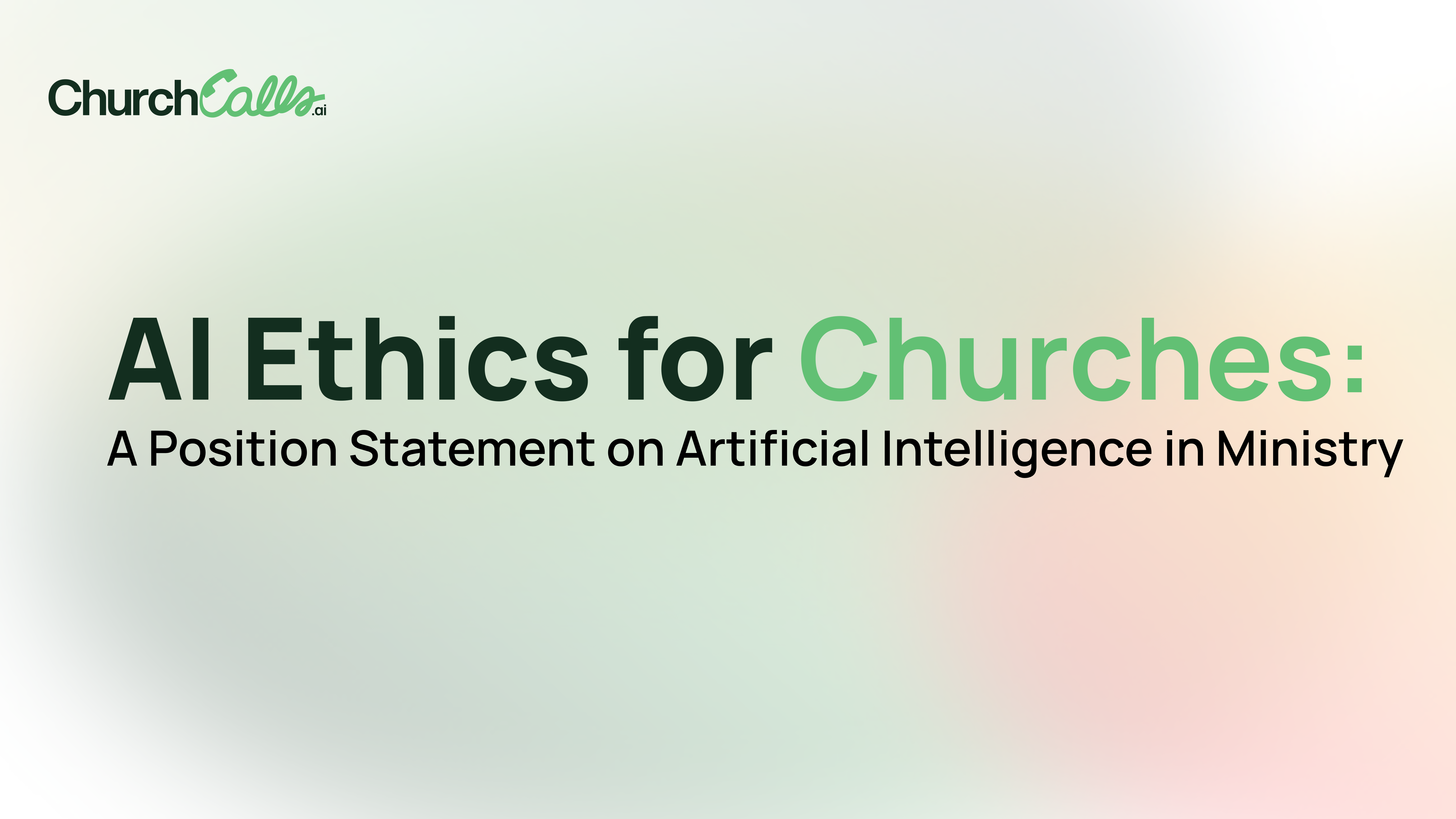
Look, AI is here. Your staff's already using ChatGPT, Google's AI is in your workspace, and honestly? That's not a bad thing. AI—when done right—can free churches up to do more of what actually matters: caring for people.
We're committed to showing, not just telling, how to do this well. Consider this our shared playbook for church AI.
AI handles the logistics. Humans handle the hearts. Whether it's digital agents answering phones, chatbots on church websites, or AI helping craft newsletters—technology should create space for more meaningful human connection, not replace it.
AI agents should identify themselves right up front. No catfishing. No pretending. Congregations deserve honesty, and frankly, most people are cool with AI when you're straight with them. (Yes, churches can change this setting, but we strongly believe transparency builds trust.)
AI is GREAT for:
AI should NEVER:
Church data isn't just data—it's people's stories, struggles, and spiritual journeys. Whether it's an AI phone agent, sermon transcription tool, or donor management system: no training on congregation data, clear data boundaries, transparent deletion policies, and security that honors the trust placed in ministries.
When AI doesn't know something, it should say "I don't know, let me get someone who can help." No making stuff up. No weird hallucinations. Whether it's a digital agent on the phone or AI helping write social posts—accuracy and authenticity matter.
Here's what excites us: AI isn't going to replace ministry—it's going to unleash it.
Imagine pastors freed from 20 hours of admin work weekly, dedicating that time to actual pastoral care. Picture small churches offering 24/7 support without burning out volunteers. Think about sermons instantly translated into dozen languages, making God's word accessible to entire communities previously unreached.
We're heading toward a future where every church—regardless of size or budget—can provide consistent, compassionate first response while preserving sacred human moments for what matters most. Where language barriers dissolve. Where no call for help goes unanswered. Where technology serves the timeless mission of loving people well.
The churches that thrive won't be the ones that resist AI or blindly embrace it. They'll be the ones that thoughtfully integrate these tools while fiercely protecting what makes ministry human: genuine connection, spiritual discernment, and authentic love.
This isn't about robots taking over church. It's about technology finally serving its proper role: amplifying human capacity for good.